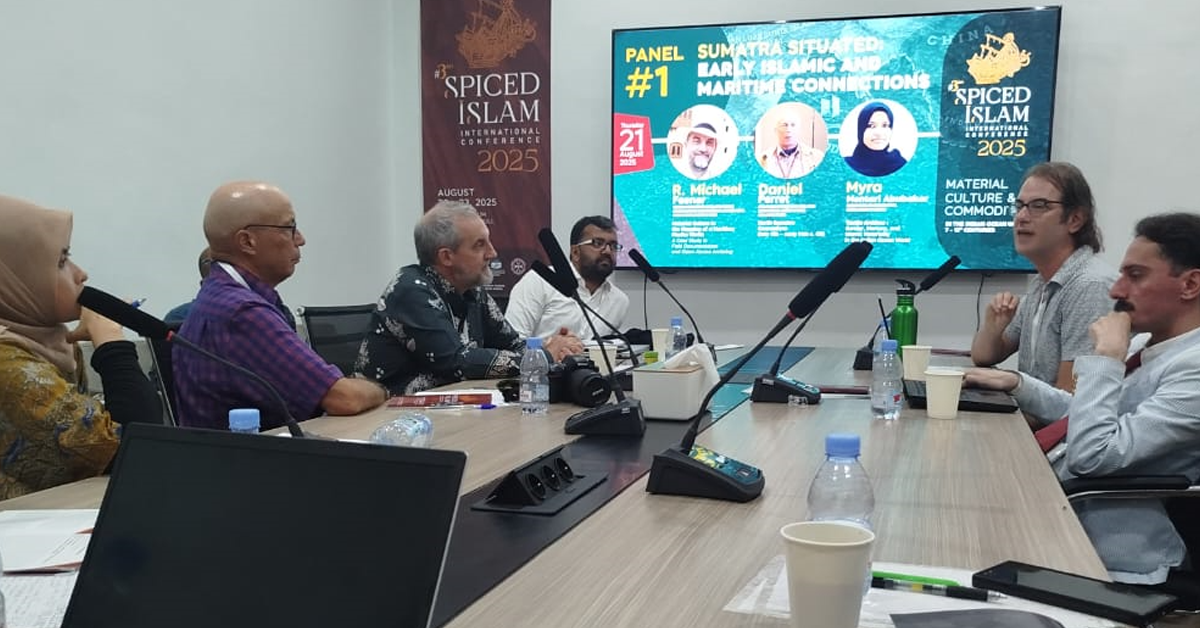Spiced Islam International Conference III with UIN Jakarta Explores Maritime Connections of the Islamic Civilization
Central Tapanuli, UIN Online News — The third Spiced Islam International Conference was held on August 20–22, 2025, bringing together leading scholars from across the globe to explore the rich history, culture, and civilization of Islam in the Indian Ocean region.
With a central theme highlighting interregional maritime connections, the conference featured the latest research spanning social, political, economic, and architectural dimensions of Islamic history.
Distinguished speakers hailed from prominent institutions such as Aga Khan University London, Université de Malaya, Kyoto University, Leiden University, National University of Singapore, and various Indonesian universities as hosts of this prestigious event.
Topics ranged from maritime trade and shipbuilding traditions to archaeology and the role of Islam in global medieval networks. Indonesian researchers also made significant contributions, particularly in presenting findings on the Bongal site and the archipelagic links within the Indian Ocean.
Prof. Dr. Jajat Burhanudin, M.A., representing UIN Syarif Hidayatullah Jakarta and serving as the conference convener, has accommodated this series since its inception with Spiced Islam I (2022) and II (2023), previously held at UIN Jakarta in collaboration with Mahmood Kooria from University of Edinburgh.
The conference was officially inaugurated by the Central Tapanuli Regent, Masinton Pasaribu, S.H., and his deputy, with direct oversight from Herry Jogaswara, Head of the Research Organization for Archaeology, Language, and Literature (OR Arbastra), in partnership with the Sultanate Institute led by Abu Bakar Said.
One of the key discussions highlighted the historical ties between Asia and Africa through the trade of ceramics, coins, and glass artifacts dating from the 8th to 14th centuries. Material culture—including textiles, traditional boats, and betel nut consumption—also sheds light on the interconnectedness of coastal societies during the early Islamic era.
Beyond its academic contributions, the conference fostered stronger international research collaboration. The support of agencies such as BRIN, the Indonesian Ministry of Culture, and international partners demonstrated the value of maritime history studies in cultivating collective awareness of the Islamic civilization’s legacy in the Indian Ocean.
Organizers hope the forum will pave the way for sustained research cooperation and preservation of this invaluable maritime heritage.
(Mauidlotun Nisa’/Muhamad Arifin Ilham)

